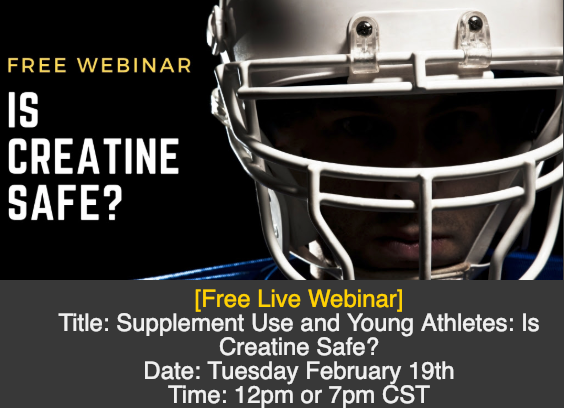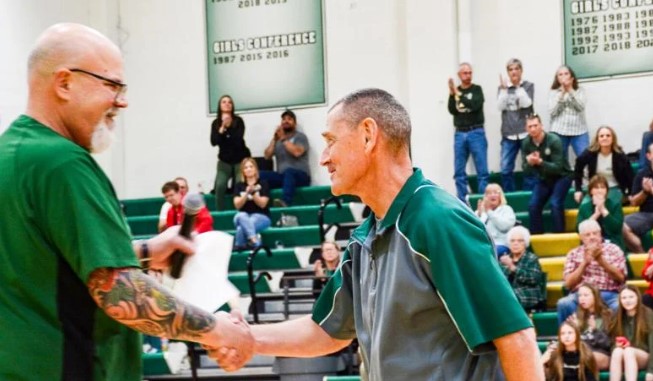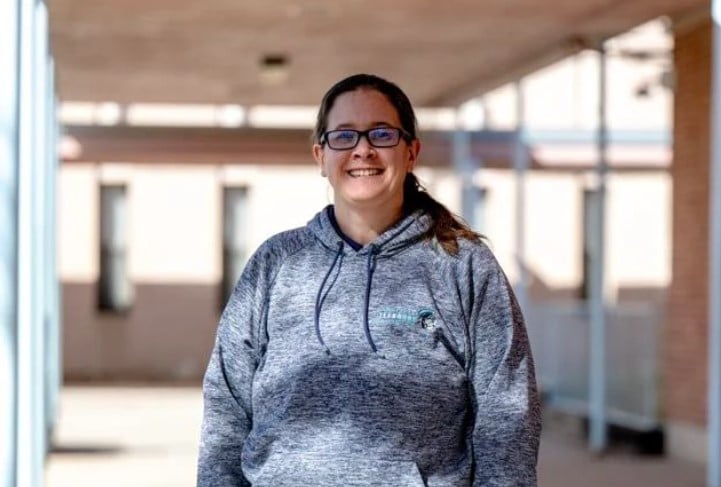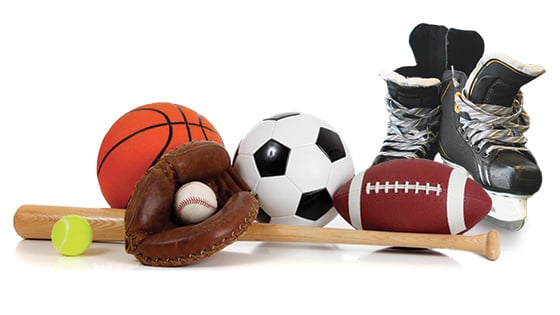Nutrition Tips for Injured Athletes

On Tuesday, February 19, Healthy Roster is partnering with My Sports Dietician / Eat to Win for a live webinar on whether or not young athletes should use supplements like creatine. Register here for a FREE webinar - Supplement Use and Young Athletes: Is Creatine Safe? Since we were already thinking about sports nutrition, we decided to research nutrition tips for injured athletes.
In a perfect world, every injured athlete would have access to an athletic trainer and a sports dietician. Unfortunately, many athletes don’t have access to both resources, so athletic trainers must often be knowledgeable in many areas - including proper nutrition for injured athletes.
While the post-injury rehabilitation process can often feel long and frustrating to an athlete who’s eager to get back on the field, there are a lot of steps you can take to ensure an efficient recovery. One of the most important things to consider is diet. Nutrition, along with proper physical therapy and an appropriate training regimen, is a key element of the recovery process. Here are six tips to consider when developing your post-injury nutrition plan.
Adjust calorie, protein, carbohydrate, and fat intake
All athletes should plan and monitor their energy intake before, during, and after their activity. When injured, however, you should recognize that the change in your exercise regimen, as well as your body’s process of building and repairing muscle, will affect the amount of calories, protein, carbohydrates, and fat that you should be consuming. Exact adjustments will obviously depend on the individual athlete and the nature of the injury, so you should consult with a sports nutritionist to develop a personal plan. That said some basic things to keep in mind are:
- An increase in protein intake will help support tissue recovery and repair, as well as rebuild muscle lost during immobilization.
- While caloric needs will generally decrease during immobilization, you will need to increase your intake again as you enter the rehabilitation phase to support strength training. Additionally, a small weight gain can help when rebuilding muscle.
- Carbohydrate intake should be lowered to avoid excessive weight gain.
- Fats such as omega-3’s are essential for the healing process.
Consume nutrient-dense foods
Certain vitamins and minerals are crucial to the recovery process. Vitamin C and zinc, for instance, assist with wound healing and optimizing immune functions, while vitamin A aids in cell growth and development, and vitamin D and calcium support bone health. Therefore, when developing your nutrition plan, you should include a variety of nutrient-dense foods such as fruits, vegetables, rice, beans, and whole-grain breads and pasta. These will distribute a high dose of important micronutrients to your organs and tissues as they recover. It’s also important to maintain a healthy intake of fluids to aid in the delivery of these nutrients.
Avoid healing inhibitors
Seeking out healthy foods is essential to recovery. Equally as important is avoiding those foods that can interfere with your healing. While most athletes know to limit their intake of fried or fatty foods, added sugars, and concentrated sweets, these foods can be even more damaging while you’re immobile and your body is repairing and rebuilding muscle. You should also keep your alcohol intake to a minimum. Alcohol is one of the worst things you can consume as an injured athlete: it dehydrates you, interferes with recovery and muscle rebuilding, and negatively affects your hormone behavior and vitamin function. On top of all of that, it makes you crave exactly those types of foods you should be avoiding. So as tempting as a cold beer might seem while an adult athlete is off the field for awhile, try to stick to water throughout your recovery.
Seek psychological support
Athletes are rightfully passionate about their sports. But because they often define their self-identity and measure their self-esteem against their performance, being sidelined for an extended period of time can put them at risk for psychological distress. The Journal of Athletic Training has even developed a scale that “measures the psychological readiness of injured athletes to return to sport participation.” What does this have to do with nutrition? The decrease in confidence and increase in anxiety about returning to the field of play that an athlete experiences can lead to food cravings and a reliance on food for comfort. Obviously, such cravings can seriously hamper one’s physical recovery, so athletes who find themselves feeling down while injured shouldn’t hesitate to seek help from mental health professionals.
Utilize a nutrition app
One of the benefits of being an athlete in today’s digital age is the availability of apps to aid in your training and recovery. (*ahem*, have you by any chance heard of Healthy Roster?) Nutrition apps are particularly popular, and while the sheer abundance of choices might feel overwhelming, we don’t hesitate in recommending Eat 2 Win Nutrition. Not only does the app provide customized meal plans and calorie counters for more than 12,000 restaurants, but it allows its users to join a community of nutrition-minded athletes who support each other through accountability and motivate one another through competition. By allowing its users to build a support network of nutrition monitors, Eat 2 Win has positioned itself as the ideal nutrition-tracking app for athletes, coaches, parents, dieticians, and athletic trainers.
Avoid quick-fix recoveries
We get it — being on the sidelines is the worst. You understandably want to suit back up as quickly as possible, but one of the hardest things to accept is the fact that most recoveries take time. There aren’t any magical, quick-fix options, so you should be wary of any products that market themselves as such. For example, oral proteolytic enzymes are often advertised as a speedy recovery solution. While they have been linked to decreased inflammation and other health benefits, there is no indication they accelerate healing past the rate of standard treatment. So if you do get injured, your best course of action is to accept that your recovery will be a gradual process, consult with an athletic trainer and nutritionist, and follow their recommended plans to ready yourself for gameplay. You’ll be back on the field (or court, or ice, or mat) in no time!
Want to limit your chance of injury in the first place? Stay safe this winter by checking out our cold-weather guide to injury prevention!


